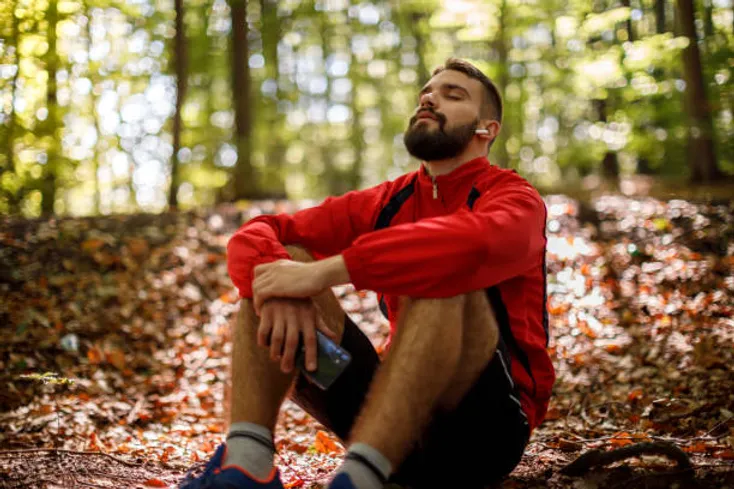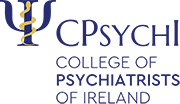In Ireland, mental health has long been a sensitive subject—often overshadowed by the reluctance to openly discuss it, which historically contributed to its stigma. For many years, people who faced mental health struggles, whether mild or severe, were discouraged from speaking out, often due to societal fears of judgment, shame, or the perception of weakness. Yet, in recent times, attitudes toward mental health in Ireland have shifted significantly. While progress continues to be made in both societal attitudes and professional mental health care, one of the most significant and inspiring changes has come from the sports community.
Athletes, who have long been seen as the epitome of physical strength and perseverance, are now stepping up to demonstrate the strength it takes to care for one’s mental health. Their courage to speak openly about their mental health struggles is helping to break the long-standing stigma surrounding mental illness, and their advocacy is inspiring others to speak out and seek help. In this article, we explore the ways in which Irish athletes and sports organizations are playing a pivotal role in changing perceptions and challenging the stigma surrounding mental health.
The Historical Stigma of Mental Health in Ireland
Historically, Ireland has had a complex relationship with mental health, often characterised by silence, shame, and secrecy. Although the country was one of the first in the English-speaking world to try to treat individuals with mental illness humanely—dating back to Dean Jonathan Swift’s pioneering work in the early 18th century—the stigma surrounding mental health persisted for centuries.
Throughout much of Irish history, mental illness was seen as a mark of personal failure or weakness, often met with societal rejection. Those who struggled with mental health were frequently ostracised or treated as if their conditions were something to be hidden from the public eye. Families felt a tremendous pressure to conceal the mental health struggles of their loved ones, as the repercussions of such disclosure could be far-reaching, affecting not just the individual but also their family’s social standing, work prospects, and marriageability.
For many years, the very idea of seeking professional help for mental health concerns was considered taboo, and those who suffered from conditions like depression, anxiety, or trauma often suffered in silence. Even as awareness around mental health began to grow in the late 20th century, many still hesitated to seek help due to fears of being judged or seen as weak.
The Role of Athletes in Changing the Narrative
The most significant shift in Ireland’s mental health conversation in recent years has come through the efforts of athletes. These public figures have begun to break down the barriers of silence and stigma by openly discussing their own struggles with mental health. This openness not only makes it easier for others to share their own challenges but also helps to normalise mental health care and support.
1. Alan O’Mara: A Voice of Courage
One of the most notable athletes in Ireland to speak openly about his mental health is former Gaelic footballer Alan O’Mara. In his 2015 memoir, The Best is Yet to Come, O’Mara revealed his long-term battle with depression, sharing personal and harrowing accounts of his experience with mental illness. His honesty and vulnerability have made a profound impact, especially in a country where emotional transparency has traditionally been difficult.
O’Mara’s candidness about his struggles with suicidal thoughts and actions helped to demonstrate the reality of mental health battles—one that doesn’t discriminate based on a person’s accomplishments or career. He shared moments of intense despair, saying, “I’ve probably had dozens of suicidal feelings – it may be in the hundreds – and twice I’ve had suicidal actions. I came back but it was very close.” These words have struck a chord with many, particularly those who may have previously struggled in silence. Through his story, O’Mara showed that even elite athletes, often perceived as indestructible, face real and difficult mental health battles.
2. Conor Cusack: Breaking the Silence on Depression
Similarly, former Cork hurler Conor Cusack also became a prominent figure in Ireland’s mental health conversation. Cusack, who has openly discussed his own struggles with depression and suicidal ideation, has become a powerful advocate for mental health awareness. His poignant recollection of the moment when he almost took his life is both heartbreaking and inspiring: “As I wrapped my lips around the barrel of the shotgun… my pet dog came rushing into view, and the thought flashed through my mind, ‘Who will look after the dog when I’m gone?’”
Cusack’s story of survival and eventual recovery illustrates the profound impact that mental health struggles can have, even on those who are outwardly successful. His willingness to share his darkest moments and to encourage others to seek help has helped to remove some of the shame that has long been associated with mental health challenges in Ireland.
3. Stephanie Roche and Keith Earls: Shifting the Narrative for Younger Generations
Footballer Stephanie Roche and rugby player Keith Earls are also prominent figures who have advocated for greater openness about mental health struggles. Both athletes have shared their own experiences with mental health, which has helped change the narrative for younger fans who often look to them as role models.
Roche shared her experience with mental health, saying, “I think for years people almost saw mental health as a made-up thing. But we’re so much better at discussing it now.” Her commitment to promoting mental health awareness among her fans and teammates has had a lasting effect, particularly for younger generations who might not have had access to such open discussions about mental health in the past.
Keith Earls, who struggled with trauma and emotional challenges stemming from his family’s history of loss, also shared his journey. Earls spoke candidly about how his past experiences—such as the suicide of an uncle and the tragic deaths of cousins—impacted his mental health and led to an emotional breakdown. “I had a lot of past trauma. I never dealt with any of it. I just exploded one day,” he revealed. His story has highlighted how unresolved grief and trauma can affect anyone, regardless of their public persona.
Both Roche and Earls demonstrate that it’s not a weakness to struggle with mental health. Rather, by acknowledging and confronting mental health issues, individuals can take proactive steps to safeguard their well-being.
Advocating for Better Mental Health Support Systems
Beyond personal testimony, Irish athletes have played a crucial role in advocating for better mental health services for everyone, particularly athletes. They understand the immense pressures that athletes face, and many of them have used their platform to lobby for more resources and greater accessibility to mental health care.
4. Richie Sadlier: A Therapist in the Spotlight
Richie Sadlier, a former professional footballer and now a qualified psychotherapist, is one of the most vocal athletes advocating for mental health support. Through his personal experience and career as a therapist, Sadlier has used his platform to encourage others to seek help for mental health issues. His approach includes not only therapy but also physical self-care, such as going to the gym and maintaining a healthy diet.
“I go to the gym regularly. I see a therapist every week, and I keep an eye on my diet as best I can. Simple stuff really,” he explained. His openness about seeking therapy and his advocacy for mental health highlights the importance of regular care—both mental and physical—in maintaining well-being.
Athletes like Sadlier, who openly admit to the importance of mental health care in their own lives, make it clear that looking after one’s emotional health is just as important as maintaining physical health. As role models, they are helping to redefine what it means to be strong, teaching the younger generation that emotional resilience is just as vital as physical resilience.
5. Sports Organizations: Institutional Support for Mental Health
Irish sports organisations, particularly those in the GAA (Gaelic Athletic Association), have also played a critical role in changing the landscape of mental health care. The GAA Health Clubs Initiative, for example, integrates mental health support and awareness into local clubs, providing resources for individuals who may be struggling. This initiative is just one example of how Irish sports organizations are taking action to ensure that mental health services are woven into the fabric of athletic communities, ensuring athletes at all levels receive the support they need.
Collaborating with Charities and Campaigns
Many athletes in Ireland have partnered with mental health charities to raise awareness and support for those struggling with mental health conditions. One such initiative is the Darkness Into Light campaign, which aims to raise awareness for suicide prevention. Supported by several high-profile athletes, including Eoin Doyle, the event has become a powerful tool for public education and fundraising. By taking part in such campaigns, athletes bring attention to the resources available for mental health, encouraging others to seek help before they reach crisis points.
Organisations like Pieta House, Aware, and Samaritans Ireland have also benefitted from partnerships with sports personalities, who act as ambassadors for their causes. By lending their voices to these campaigns, athletes help bring national attention to the importance of mental health care and suicide prevention, demonstrating their commitment to the cause.
Shaping Policy and Mental Health Awareness in Sports
As more athletes speak out about mental health, they are influencing policy decisions and funding allocations in sports. The conversation surrounding mental health has now become an integral part of discussions about sports development. Thanks to the efforts of those advocating for better mental health services, sports organizations in Ireland are now more likely to consider mental health as a key component when creating support structures for athletes.
By keeping mental health at the forefront of public discussions, athletes ensure that it remains a priority for both sports governing bodies and policymakers. These efforts are contributing to a more comprehensive approach to mental health care in Irish sports.
Conclusion: A Changing Landscape for Mental Health in Ireland
Through the actions of athletes like Alan O’Mara, Conor Cusack, Richie Sadlier, Stephanie Roche, and Keith Earls, mental health is being discussed openly in Ireland like never before. Athletes are breaking down long-standing stigmas and inspiring individuals to seek help, not only for their mental health but also for their well-being as a whole.
In addition to sharing personal stories and offering support, athletes are helping to shift societal perceptions, showing the public that mental health struggles are not a sign of weakness but a natural part of life that requires attention and care. As they continue to speak out, advocate for better resources, and collaborate with mental health organisations, they are playing a critical role in shaping a healthier, more supportive society in Ireland.
In the years to come, it is likely that the mental health conversation in Ireland will continue to evolve, with sports figures at the forefront of this transformation. As the stigma around mental health continues to dissipate, and as more individuals feel empowered to seek help, Ireland will undoubtedly move closer to a future where mental health is truly recognised as equally important as physical health.












